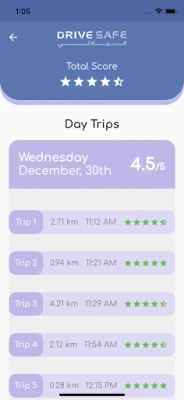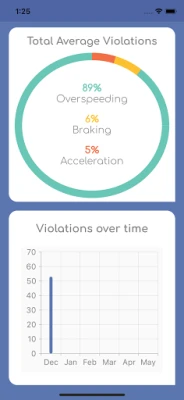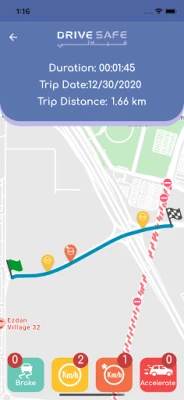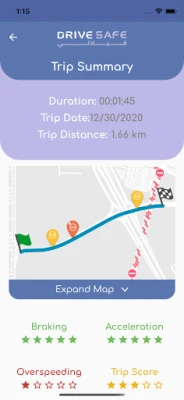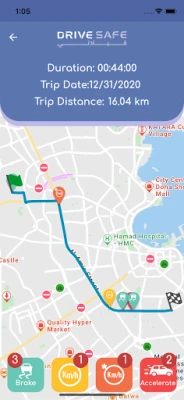
Latest Version
2.5.0
April 08, 2025
QMIC
Tools
Android
0
Free
com.qmic.mydriving
Report a Problem
More About DriveSafe
Enhancing User Experience and Driver Safety with Background Location Tracking
In today's fast-paced world, mobile applications play a crucial role in enhancing user experience and ensuring safety, especially for drivers. One of the most innovative features that modern apps incorporate is background location tracking. This technology allows apps to automatically monitor user performance even when they are not actively using the application. Let’s explore how this feature works and its benefits for both users and drivers.
Understanding Background Location Tracking
Background location tracking refers to the ability of an application to access a user's location data while the app is running in the background. This functionality is essential for applications that aim to provide continuous performance monitoring without requiring constant user interaction. By leveraging GPS and other location services, apps can gather valuable data that enhances the overall user experience.
Seamless User Experience
One of the primary advantages of background location tracking is the seamless experience it offers to users. When an app can automatically measure performance without needing the user to open it, it significantly reduces friction. Users can engage in their daily activities without interruptions, while the app quietly collects data to improve its services.
For instance, fitness apps can track a runner's route and performance metrics without requiring the user to start and stop the tracking manually. This not only saves time but also ensures that users receive accurate data about their activities, leading to better insights and improvements.
Enhancing Driver Safety
Driver safety is a paramount concern in the transportation industry. Background location tracking plays a vital role in ensuring that drivers remain safe on the road. By continuously monitoring a driver's location and performance, apps can provide real-time feedback and alerts that help prevent accidents and improve driving habits.
For example, navigation apps can alert drivers to hazardous conditions or suggest safer routes based on real-time traffic data. Additionally, ride-sharing services can track driver behavior, ensuring that they adhere to safety protocols and providing passengers with a safer travel experience.
Data Privacy and User Consent
While the benefits of background location tracking are significant, it is essential to address data privacy concerns. Users must be informed about how their location data will be used and must provide explicit consent for the app to access this information. Transparency is key to building trust between users and app developers.
Apps should implement clear privacy policies and allow users to control their location settings. This empowers users to make informed decisions about their data while still enjoying the benefits of background location tracking.
Conclusion
Incorporating background location tracking into mobile applications offers numerous advantages, particularly in enhancing user experience and ensuring driver safety. By automatically measuring performance without requiring active user engagement, apps can provide valuable insights and real-time feedback. However, it is crucial to prioritize data privacy and user consent to maintain trust and transparency. As technology continues to evolve, background location tracking will undoubtedly play a pivotal role in shaping the future of mobile applications.
Rate the App
User Reviews
Popular Apps










Editor's Choice











